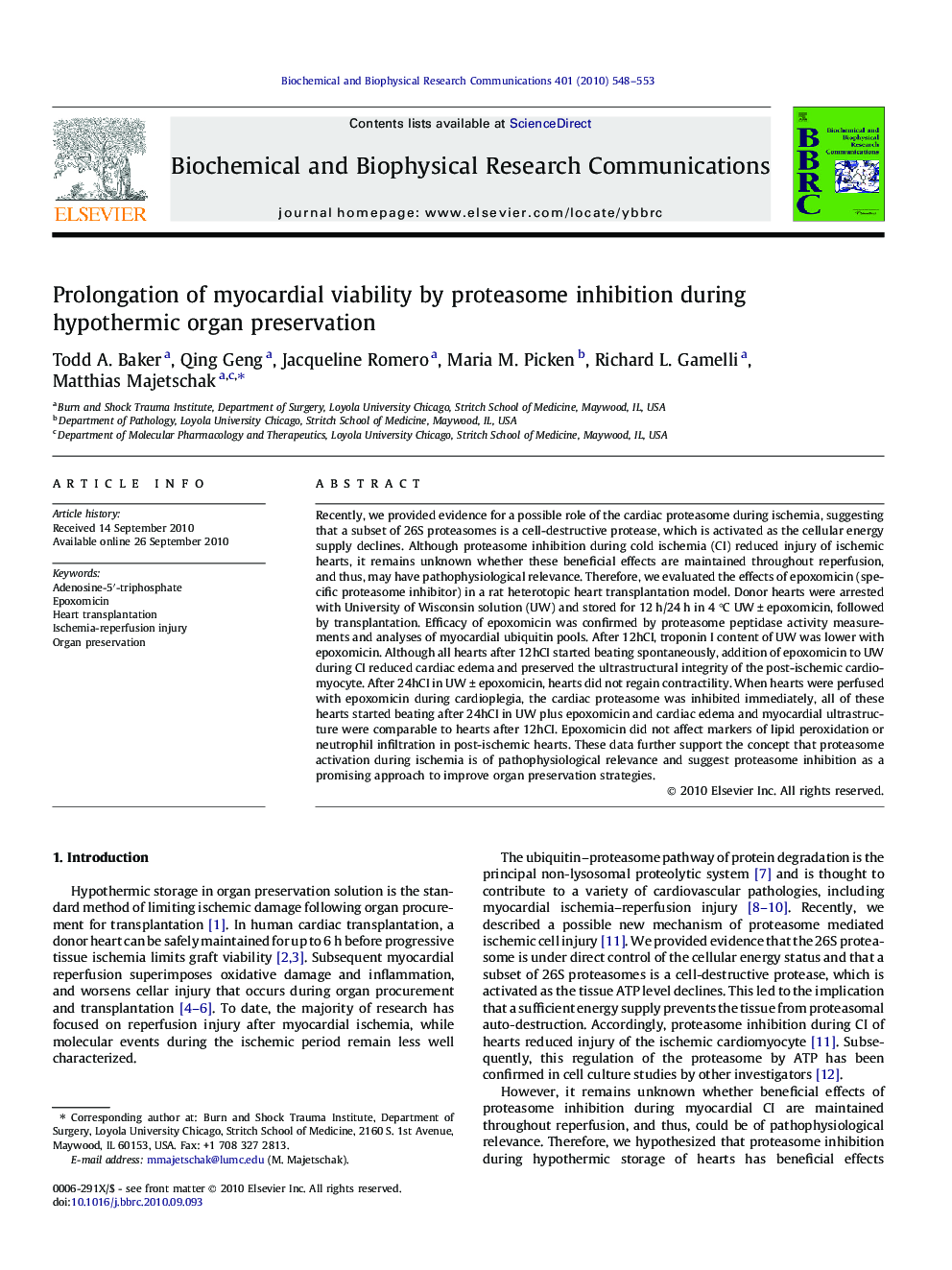| کد مقاله | کد نشریه | سال انتشار | مقاله انگلیسی | نسخه تمام متن |
|---|---|---|---|---|
| 1931202 | 1050544 | 2010 | 6 صفحه PDF | دانلود رایگان |

Recently, we provided evidence for a possible role of the cardiac proteasome during ischemia, suggesting that a subset of 26S proteasomes is a cell-destructive protease, which is activated as the cellular energy supply declines. Although proteasome inhibition during cold ischemia (CI) reduced injury of ischemic hearts, it remains unknown whether these beneficial effects are maintained throughout reperfusion, and thus, may have pathophysiological relevance. Therefore, we evaluated the effects of epoxomicin (specific proteasome inhibitor) in a rat heterotopic heart transplantation model. Donor hearts were arrested with University of Wisconsin solution (UW) and stored for 12 h/24 h in 4 °C UW ± epoxomicin, followed by transplantation. Efficacy of epoxomicin was confirmed by proteasome peptidase activity measurements and analyses of myocardial ubiquitin pools. After 12hCI, troponin I content of UW was lower with epoxomicin. Although all hearts after 12hCI started beating spontaneously, addition of epoxomicin to UW during CI reduced cardiac edema and preserved the ultrastructural integrity of the post-ischemic cardiomyocyte. After 24hCI in UW ± epoxomicin, hearts did not regain contractility. When hearts were perfused with epoxomicin during cardioplegia, the cardiac proteasome was inhibited immediately, all of these hearts started beating after 24hCI in UW plus epoxomicin and cardiac edema and myocardial ultrastructure were comparable to hearts after 12hCI. Epoxomicin did not affect markers of lipid peroxidation or neutrophil infiltration in post-ischemic hearts. These data further support the concept that proteasome activation during ischemia is of pathophysiological relevance and suggest proteasome inhibition as a promising approach to improve organ preservation strategies.
Research highlights
► Proteasome inhibition during cold ischemia of hearts prolongs myocardial viability.
► Proteasome inhibition during cold ischemia of hearts reduces reperfusion injury.
► Proteasome inhibition during cold ischemia has direct cardioprotective effects.
► Proteasome activation during ischemia is pathophysiologically relevant.
Journal: Biochemical and Biophysical Research Communications - Volume 401, Issue 4, 29 October 2010, Pages 548–553